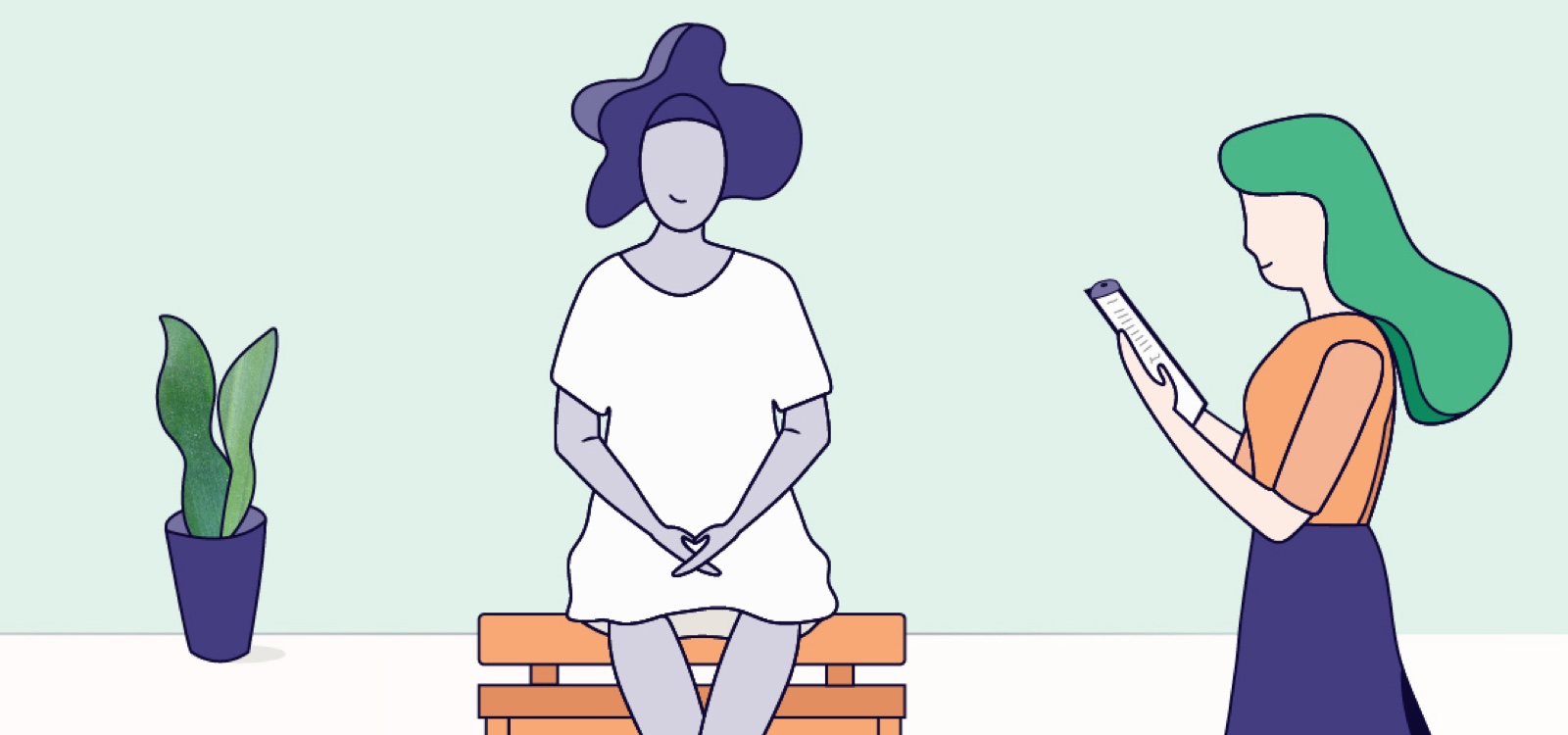There are many women’s health conditions that may relate to bladder pain which can range from minor problems to serious conditions. Pain may also occur in the lower back, abdomen, or groin.
Bladder pain may be an indicator of several different issues, especially if it occurs alongside symptoms like abnormal vaginal discharge, urinary incontinence, and pain during sex. It may not be easy to determine the exact cause of bladder pain.
Pain-Causing Health Conditions

The most common causes of bladder pain are:
- Interstitial cystitis (IC) — a chronic condition in which the bladder becomes inflamed and irritated, making it difficult for the bladder to fully expand when filling with urine
- Urinary tract infection (UTI) — an infection that occurs when bacteria comes through the urethra which connects the bladder with the outside of the body.
Symptoms of a bladder infection include:
- Pain or burning during urination
- Urgent need to urinate
- Pain or tenderness in the abdomen
- Cloudy, bloody, or foul-smelling urine
- Low-grade fever
- Frequent need to urinate
- Blood in the urine
Bladder cancer — the most common type of bladder cancer is transitional cell carcinoma, which begins in the innermost layer of tissue lining the bladder. Other symptoms of bladder cancer may include:
- Blood in urine
- Pain during urination
- Difficulty passing urine
- Frequent urination or urgent need to urinate
- Lower back pain
When to See a Doctor for Bladder Pain
If over-the-counter pain relievers fail to relieve the pain and the problem persists, see your doctor.
Keep track of any symptoms you experience along with the bladder pain, such as abnormal vaginal discharge, abdominal or pelvic pain, or bleeding. This will help your doctor better make a diagnosis for you and prescribe a treatment plan to help relieve the pain and find a treatment that’s right for you as quickly as possible.
Your healthcare provider will likely order diagnostic tests to determine the underlying cause of the bladder pain, such as a urine sample, a cystoscopy, or an ultrasound or CT scan. Several treatments may help relieve bladder pain, but meeting with a healthcare provider will ensure you find one that works best for you.
How Advanced Gynecology Can Help: Treatment Options for Bladder Pain
If you’ve been suffering persistent bladder pain, Advanced Gynecology is here for you.
Our board-certified team of women’s health experts are ready to help you with diagnostic care and a range of options from pain management solutions to surgical procedures to hormone therapy to a minimally invasive laparoscopic procedure.
We will counsel you about the best options for you and your health, based on your personal health history, current health circumstances, and your symptoms.
In the meantime, it can be helpful to take anti-inflammatory medications like Advil or Aleve. Some diet changes may also help relieve bladder pain, as certain foods, if any, may irritate your bladder. Be sure to keep note of your diet along with the symptoms you’re experiencing.
For more information, schedule an appointment today or call 706-389-9228 to speak with one of our patient coordinators.
For more information, schedule an appointment today or call 678-263-0280 to speak with one of our patient coordinators.
